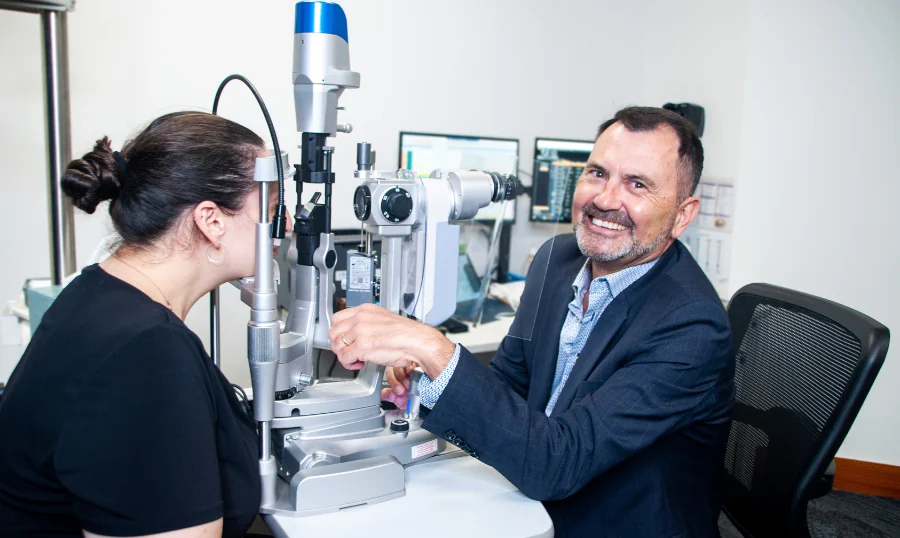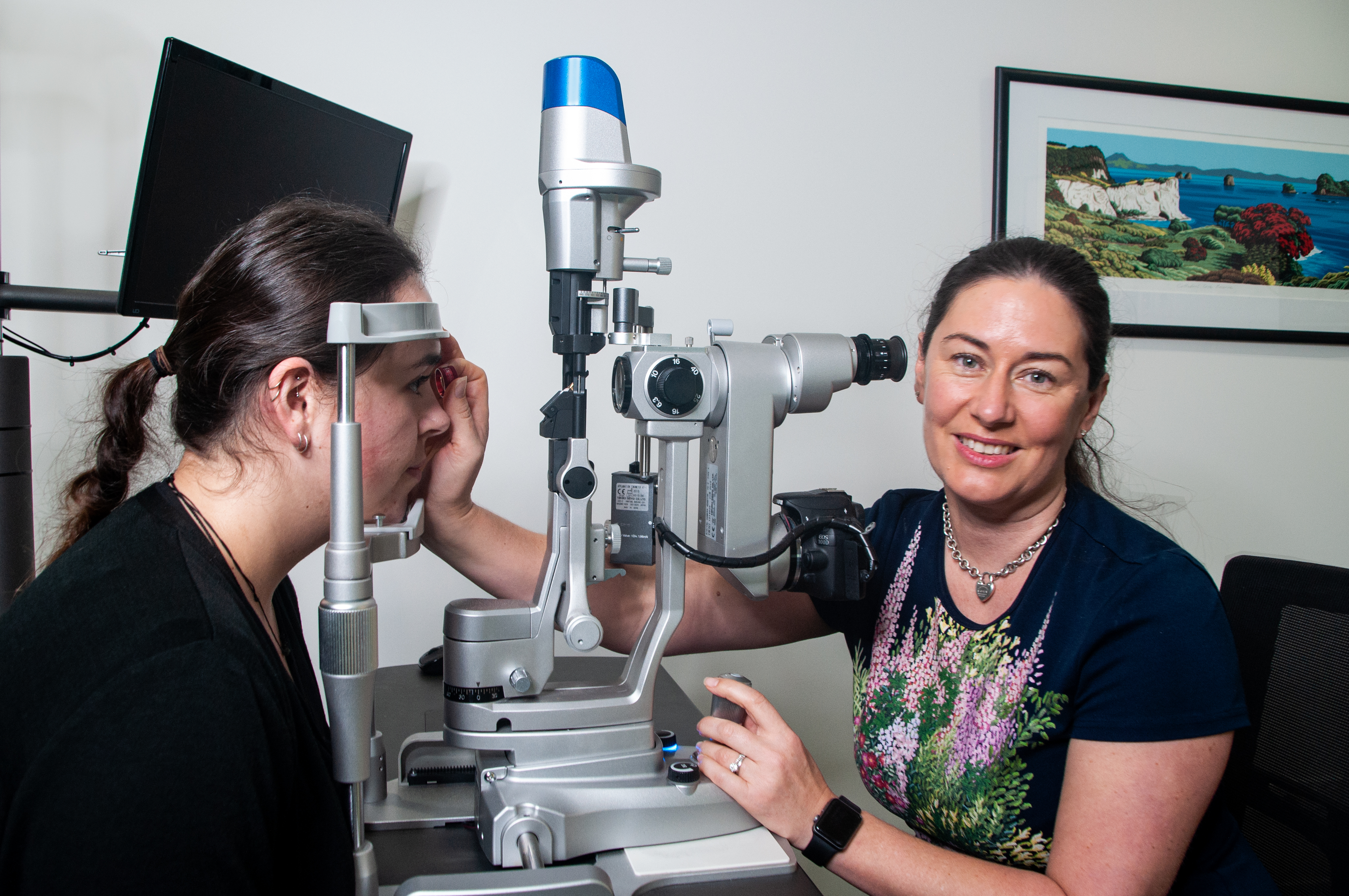Supporting New Zealanders Living with Glaucoma
Helping Kiwis navigate glaucoma with knowledge, community support, and resources that empower people to manage their vision health.

It’s a long haul to become an ophthalmologist: five years at medical school, two years as a specialist and three as a surgeon. Nonetheless, Justin Mora knew he wanted to be an eye surgeon from just thirteen-years-old.
Family lore has him making this claim, although he had no idea why it was to be his destiny, only that he wanted “to help people see”. Twenty-two years since graduating, Mora is a senior ophthalmologist at Auckland Eye, and finds immense satisfaction in his work. For him and his colleagues, it’s about more than just fixing eyesight — it’s about improving lives.
“You won’t find an ophthalmologist who doesn’t love their job,” he says.
One of Mora’s memorable experiences treating a patient was when a 70-year-old man attended Auckland Eye with a foreign object in his eye. Mora noticed he had a cataract in his other eye. “You learn to see as a child” says Mora “and the man was adamant that this injury was straight after his 8th birthday. We talked about it and decided to take the cataract out of this eye which had not seen for 62 years. The day after he took his pad off he had 20/20 vision.” It’s experiences like these that keep Mora’s spirits high.
Auckland Eye was founded by four doctors in 1993, and now employs 18 ophthalmologists across their multiple locations. Aotearoa has only 160 ophthalmologists, so that represents a fair chunk of the specialists.
Mora says one of the benefits of being in a large practice and having so many doctors is they can afford to be at the forefront of cutting-edge technology, providing the latest advancements from laser surgery to refractive lens exchange procedures.
In the realm of treatment options, innovation reigns supreme. They have recently updated their laser equipment worth millions of dollars.
Mora says awareness about the importance of eye health is high in NZ, although knowledge about associated diseases (e.g. macular degeneration) is low. The myopia epidemic has become a major cause of concern for ophthalmologists world wide. In Singapore, for instance, 95 per cent of young people are leaving school with nearsightedness. While Mora says lifestyle factors play a significant role in its escalation — excessive screen time, close reading and other near-vision efforts — it’s also the absence of natural sunlight that has been recognised as being one of the main causes.
“We knew for a long time that being outside was helpful” says Mora “but now we know it’s the luminance levels in natural sunlight, which cannot be mimicked by indoor lighting, that is helpful in slowing and even potentially limiting short sightedness”.
Suddenly the call to go outside and play is more salutary than just getting the kids off the couch.
As for adults, concentrated work, like reading or staring at screens, can lead to dry eyes due to decreased blinking. For every hour in front of a device it’s recommended you have half an hour away, ideally outside.
It has always been through the eye that a variety of conditions are detected. “Even simple things like hypertension’ says Mora, “we see change in the blood vessels in the eyes before its registered in the rest of the body.”
And never think you are 'too old' for vision correction solutions. "Visiting an opthalmologist is worth doing at any age because caring for your eyes isn’t just about seeing better — it’s about living better.”

Helping Kiwis navigate glaucoma with knowledge, community support, and resources that empower people to manage their vision health.

We are delighted to celebrate a milestone for Dr Rachael Niederer, who has been promoted to Associate Professor at the University of Auckland.

Let’s explore the science and the wonder behind these tiny but powerful organs.